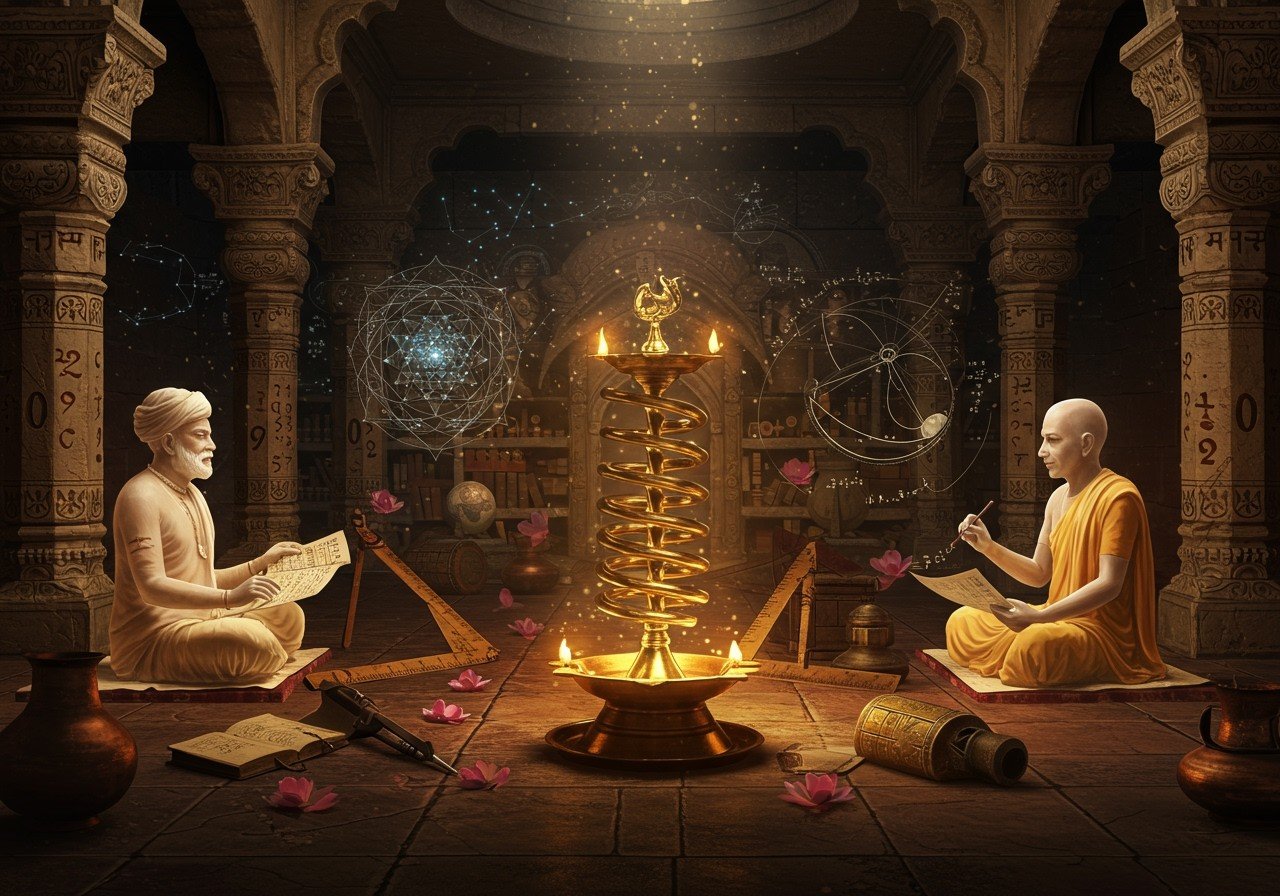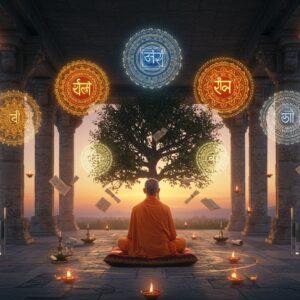
Indian mathematics boasts a rich and extensive history, spanning millennia. This article delves into the lives and achievements of some of the most celebrated mathematicians from ancient and medieval India to the modern era. We will explore their groundbreaking work, their enduring influence on both Indian and global mathematics, and how their legacies continue to shape the field today.
Aryabhata (476–550 CE)
Aryabhata: The Trailblazing Mathematician and Astronomer
Aryabhata stands as a pivotal figure in the classical age of Indian mathematics and astronomy. His magnum opus, the ‘Aryabhatiya,’ encompasses arithmetic, algebra, plane trigonometry, and spherical trigonometry. Aryabhata provided a remarkably precise approximation of pi (π) and contributed significantly to the development of the place value system and the concept of zero. He also made notable strides in astronomical calculations, including determining the length of the solar year. Aryabhata’s methods had a profound impact on subsequent Islamic and European mathematicians.
Brahmagupta (598–668 CE)
Brahmagupta: A Master of Algebra and Astronomy
Brahmagupta is widely regarded as one of ancient India’s most brilliant mathematicians. His principal work, the ‘Brahmasphutasiddhanta,’ holds immense significance in algebra, arithmetic, and astronomy. He introduced groundbreaking rules for operations with zero and negative numbers, concepts that revolutionized mathematical thinking. Brahmagupta also provided solutions to quadratic equations and delved into the properties of cyclic quadrilaterals. His work influenced later mathematicians in both the Islamic world and Europe.
Bhaskara II (1114–1185 CE)
Bhaskara II: The Eminent Scholar of Mathematics and Astronomy
Bhaskara II, also known as Bhaskaracharya, made substantial contributions to mathematics and astronomy. His renowned works, ‘Lilavati’ and ‘Bijaganita,’ explore arithmetic, algebra, and geometry. Bhaskara II’s early work on calculus included concepts like derivatives and differential calculus. He also contributed to solving algebraic equations and studying the sine function. His work paved the way for future developments in both Indian and global mathematics.
Madhava of Sangamagrama (c. 1340–1425)
Madhava: The Founder of the Kerala School
Madhava is credited with establishing the Kerala School of Astronomy and Mathematics. He pioneered the development of infinite series and calculus. Madhava’s work on trigonometric functions, particularly series expansions for sine and cosine, was truly groundbreaking. His contributions predated and influenced later developments in European mathematics by several centuries. The legacy of the Kerala School has left an indelible mark on the history of mathematics.
Srinivasa Ramanujan (1887–1920)
Ramanujan: The Prodigious Mathematician
Srinivasa Ramanujan stands as one of the most renowned Indian mathematicians of the modern era. His extraordinary life story, from humble origins to a remarkable collaboration with G.H. Hardy at Cambridge University, is a testament to his genius. Ramanujan made significant contributions to number theory, including the partition function and modular forms. He worked on continued fractions and introduced the Ramanujan-Hardy number. The impact of his ‘lost notebook’ continues to resonate in contemporary mathematics. Ramanujan’s legacy is celebrated annually through National Mathematics Day in India.
Shakuntala Devi (1929–2013)
Shakuntala Devi: The Human Computer
Shakuntala Devi was celebrated for her exceptional computational abilities, earning her the moniker “Human Computer.” She demonstrated her extraordinary talent by swiftly and accurately solving complex mathematical problems without any mechanical assistance. Shakuntala Devi also authored books on mathematics, puzzles, and astrology. Her work showcased the accessibility and enjoyment of mathematics for everyone.
Poojn.in: Connecting with India’s Mathematical and Spiritual Heritage
Poojn.in, India’s leading cultural goods and services store, offers a unique opportunity to connect with India’s rich mathematical and spiritual heritage. Explore our curated collection of items that honor this legacy:
-
Brass and copper Yantras: Discover intricately designed Yantras based on sacred geometry principles used by ancient Indian mathematicians. These beautiful pieces serve as both spiritual tools and reminders of India’s mathematical ingenuity.
-
Traditional Calculation Tools: Introduce children to the wonders of mathematics with traditional calculation tools like the abacus (soroban). These tools offer a hands-on approach to learning mathematical concepts, connecting them to historical practices.
-
Books and Guides: Delve deeper into the intersection of mathematics and Vedic knowledge with our selection of books and guides. Explore the philosophical and spiritual dimensions of mathematical concepts, enriching your understanding of both disciplines.
Visit Poojn.in today to explore our complete collection and discover how you can integrate these elements into your spiritual practice.
Conclusion
The exploration of the lives and contributions of Aryabhata, Brahmagupta, Bhaskara II, Madhava, Ramanujan, and Shakuntala Devi illuminates the profound legacy of Indian mathematics. These visionaries established the foundation for numerous modern mathematical concepts and practices. Their work continues to inspire mathematicians worldwide, reflecting India’s enduring impact on the field. By embracing their contributions, we not only honor our traditions but also encourage the pursuit of knowledge and innovation in mathematics today.


